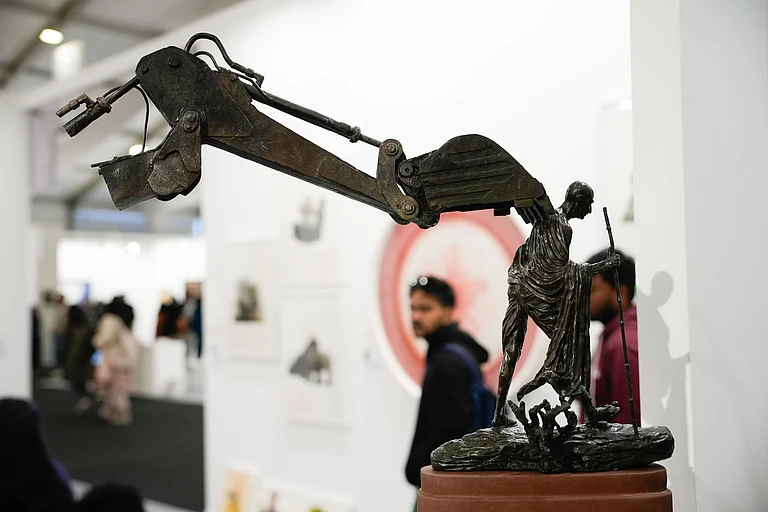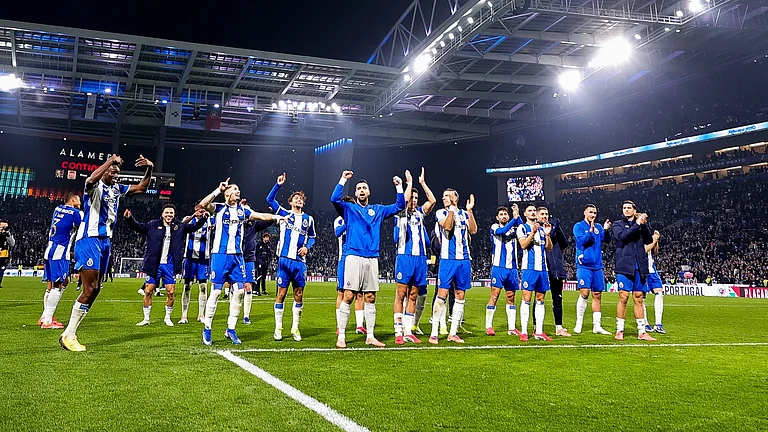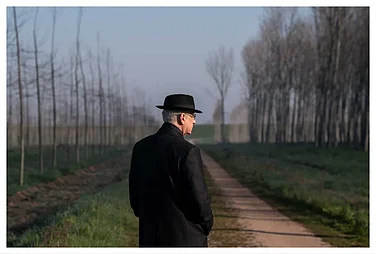IT’S all in the genes for Dimple Kapadia and Rajesh Khanna’s younger daughter. Unlike lesser mortals, Rinke Khanna can burst into tears before a whirring camera without the aid of glycerine. "What reserves of emotional memory do you draw upon?"
Movers and Shakers host Shekhar Suman asked her during a recent episode of Sony Entertainment Television’s popular chat show. "The very thought that I’m working in Hindi films is enough to reduce me to tears," replied the bubbly debutante.
That might have been said in jest, but the mass communications graduate from the University of Massachusetts has no reason any more to feel alienated from the hurly-burly of Bollywood. Her launch vehicle, Pyaar Mein Kabhi Kabhi, a glossy cinematic confection targeted primarily at teenagers, has been acquired for worldwide distribution by Hollywood giant Sony Pictures Entertainment’s wholly-owned Indian subsidiary, SPE Films India. Sixty prints, 17 countries, a tie-up with a company that distributes filmed entertainment in 67 markets worldwide: no wonder, nearly two months away from its release, PMKK is on song. The SPE Films move marks Hollywood’s formal entry into the unique world of popular Hindi cinema, that much reviled movie form the world loves to hate but doesn’t know how to resist. "It presents a wonderful opportunity to kickstart and extend our motion picture distribution business beyond the traditional slate of Hollywood films," says Duncan Clark of Columbia Tristar, SPE’s global film distribution arm.
As the company readies its first Indian acquisition for a June 25, post-World Cup release, Uday Singh, director, SPE Films India, is in Los Angeles to firm up Sony’s future production - distribution plans here. "We’ve picked up PMKK because it’s a film with a soul," says N. Muthu Ram, marketing manager, SPE Films India. "It has a refreshing quality that we’re sure will go down well with its target audience — the youth." Sony’s association with the film, says Muthu Ram, " is in keeping with our global policy to promote new, upcoming talent". Sony’s second Indian acquisition, Jad h, is also directed by a first-timer, Shantanu Sheorey.
PMKK is a celebration of raw talent. It is producer Shailendra Singh and twenty-something director Raj Kaushal’s first feature. The members of the cast are all debuting, as are the music directors, the lyricists and the singers. The tally of greenhorns involved in the creation of the film reportedly adds up to 180. "But it is anything but small film," asserts Muthu Ram. "It has all the makings of a sureshot winner. The film’s music is already making waves."
The film, a gentle love story, follows the fortunes of eight young characters who come together in a performing arts institute as they chase their dreams and passions. Producer Shailendra Singh is counting his blessings: SPE Films India is just the kind of distributor he was looking for.
"Pyaar Mein Kabhi Kabhi is ‘concept’ cinema, cinema that springs from a clear-cut conceptual brief, cinema that sells on the basis of its content, not its star cast," he says.
But it’s not merely the short - term impact of this historic tie-up that the industry is watching with interest. Indian film-makers as well as the other Hollywood giants active in this country— 20th Century Fox, Warner Bros and Paramount Films— are waiting to assess the fate of PMKK before chalking out their own future plans. Says non-mainstream filmmaker Sudhir Mishra: "Any interaction helps. If this experiment works, we could see more films that steer clear of the Mumbai pot-boiler formula. I can see the quality of production improving and the methods of working being streamlined."
A large section of the Mumbai film industry sees the entry of Sony Pictures as an opportunity to break free from the stran-glehold of the present star system and the dominance of distributors. Says Nester D’Souza of Mumbai’s Metro cinema: "The biggest beneficiaries of the entry of Hollywood firms will be the producers. There won’t be any dilly-dallying in payments."
On its part, SPE Films India has quickly grasped the film’s essence and unleashed a publicity binge designed to take the film to its target audience. While songs from PMKK are already playing on several TV channels, on the way is a special promo that will go beyond the songs and talk about the film as a whole. Also on the anvil is a slick Hollywood-style trailer. Plans are afoot to publicise the film in a big way during the live telecast of the upcoming World Cup. "The likes of Sony can make one major difference . They may take promotional activities to a different plane, in the manner that they do with Hollywood releases," says D’Souza. But as the power of Hollywood cash meets the allure of Mumbai masala, a nagging worry haunts Mishra. "I hope the whole thing does not lead to one formula replacing another," he says. "We must be careful that the popular Hindi film form is not swamped out." Remember, says Mishra, that there is nothing in the world that is quite like Guru Dutt’s films, or even Yash Chopra’s films. It is Bollywood’s sheer nimitability, more than anything else, that has perhaps made it such a hot destination for Hollywood. But when the latter fights the formula, can it nurture the spirit that drives the Mumbai dream factory?


























